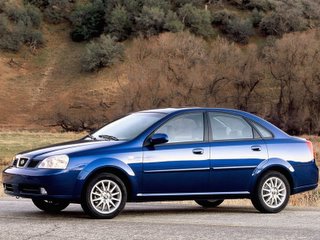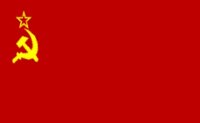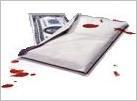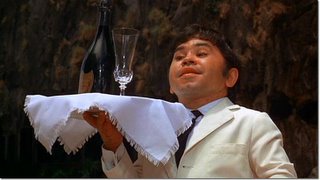The truth about Chevrolet Optra

When Chevrolet re-introduced itself into the Egyptian market, one felt that Chevrolet is trying to redefine its place in the egyptian market from being strictly dominating in the pick up and trucks market to one that actually plays a role in passenger cars. it introduced 2 models the "Optra" and its smaller hatchback version, the "Aveo". both the optra and aveo have managed to acheive record sales in record time. in comparison to other cars they are affordable, and come in very appealing engine capacities, fuel efficient and are claimed to have pretty cheap spare parts. In other words there is nothing American about them apart from the golden cross generations have grew to identify as the Chevrolet logo.
At a first glance one can't help but mistake it for a Korean car or something from Southeast Asia. Actually if you do so, you would not be totally mistaken. This car is actually
a Daewoo Nubira!
yep , you read it right the first time, theres no need to doubt your eyes, this is a Daewoo Nubira!
The Daewoo Nubira is a lineup of compact sedans and station wagons made by South Korean GM Daewoo. Visually identical models of its second generation are currently also sold as:
in Europe it is Chevrolet Lacetti
in Canada , India, Arabia , Southeast Asia and south africa its the Optra ,
get this, in the US its actually a Suzuki Forenza
as for China, it goes by the name of Buick Excelle
if you look at the picture closely you will notice the suzuki logo on the front of the car, thats how it is introduced in the US , if you are to replace it with that of chevrolet it becomes the Optra or Lacetti,
why do they do this? dont ask me...if you do know please let us know too!
here is what wikipedia had to say about the whole thing:
"The first generation car, model J100, was released to the market in 1997 as Daewoo Nubira, and it was sold until 1999. The car takes its name from the Korean word Nubira, which means "to go everywhere". It was developed as a replacement for the GM T platform-based Daewoo Nexia and designed by Italian IDEA Design. Both sedan and station wagon models were available.
In 2000, the first generation underwent over 90 improvements. Examples of these include an increase in passenger space and reduction in noise, harshness and vibration, particularly from the engine by adding a fourth engine mount and by tuning the intake resonators. In addition, the exterior design was reworked by Daewoo's Worthing Technical Centre in the United Kingdom, creating a more dynamic image.
In 2003, model J200, a new Pininfarina-designed sedan, was unveiled, and the expansion of the lineup followed by a presentation of the new station wagon in 2004. However, in its home market, the Nubira name was dropped in favour of Daewoo Lacetti for this whole range of models.
In Europe the sedan version was also sold as Daewoo Nubira, but late in 2003 it was announced that Daewoo will be rebranded as a Chevrolet on the European markets and sales of the Chevrolet Nubira began early in 2004, initially only in Eastern Europe. Following the rebranding of Daewoo products as Chevrolets across Europe, Nubiras were renamed Chevrolet Lacetti on some markets, thereby expanding the Lacetti lineup to include not only a 5-door hatchback, but also sedan and station wagon models, in line with Korea.
The engines built for the Nubira and its badge engineered twins are the same as in Lacetti hatchback and its badge engineered versions. All of them are gasoline-powered 4-cylinder engines."



